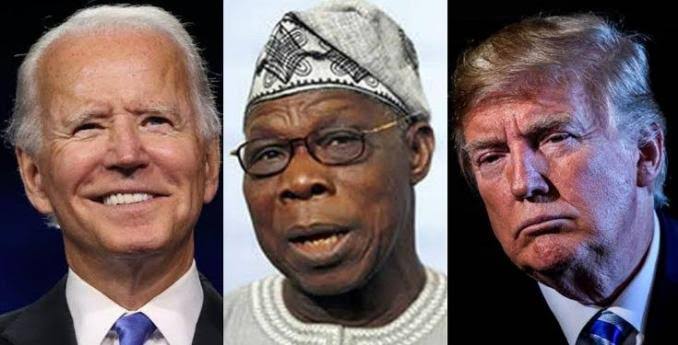
Former President Olusegun Obasanjo has responded to the recent statement by U.S. President Donald Trump, saying that during his time in office, America held Nigeria in high regard and respected its leadership role in Africa.
Speaking on Monday in Abeokuta, Ogun State, at the Presidential Youth Mentorship Retreat (6.0) organised by the Youth Development Centre of the Olusegun Obasanjo Presidential Library (OOPL), Obasanjo subtly addressed the controversy surrounding Trump’s military threat against Nigeria.
Recall POLITICS NIGERIA earlier reported that Trump had warned that the United States could send troops to Nigeria if the federal government failed to stop the killing of Christians by jihadist groups.
The U.S. president’s statement has since sparked mixed reactions across the country. While some applauded his concern, the federal government dismissed the remarks, insisting that insecurity in Nigeria cuts across all religious and ethnic groups.
Although Obasanjo did not directly mention Trump, he took a swipe at the current state of Nigeria’s global image.
He recalled a time when, under his leadership, the late U.S. President Jimmy Carter could not make any major move in Africa without first informing Nigeria.
“They were not taking permission from us but they will tell us that ‘they are doing this,’” Obasanjo said. “When I was president and Head of State, three American presidents came to Nigeria. They have not lost anything that they were looking for in Nigeria. What did they see?”
The former president, who shared a close relationship with Carter before his passing in 2024, said the U.S. once viewed Nigeria as the voice and power of Africa.
“At Independence, the world saw Nigeria as a giant coming up. Soon after independence, we lost that. When Murtala and I came into government, we brought it back,” he added.
However, Obasanjo held a memorial earlier this year in honour of Carter, where he described him as a true friend of Nigeria and Africa.
It could be recalled that Trump’s recent threat to deploy American troops over alleged persecution of Christians has triggered diplomatic debates and drawn condemnation from the Nigerian government and several political leaders who viewed his comments as interference in Nigeria’s internal affairs.
